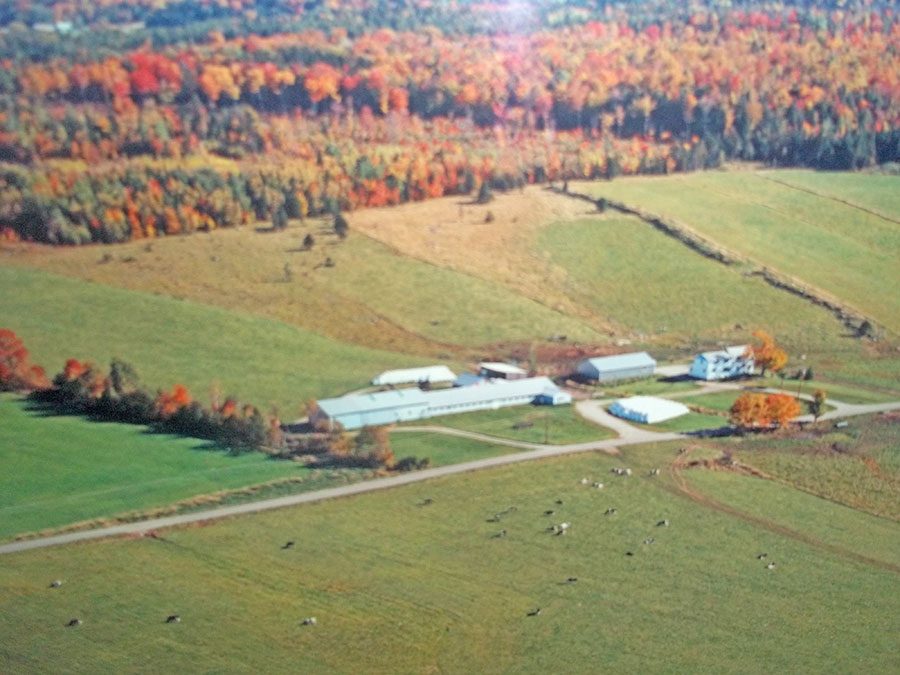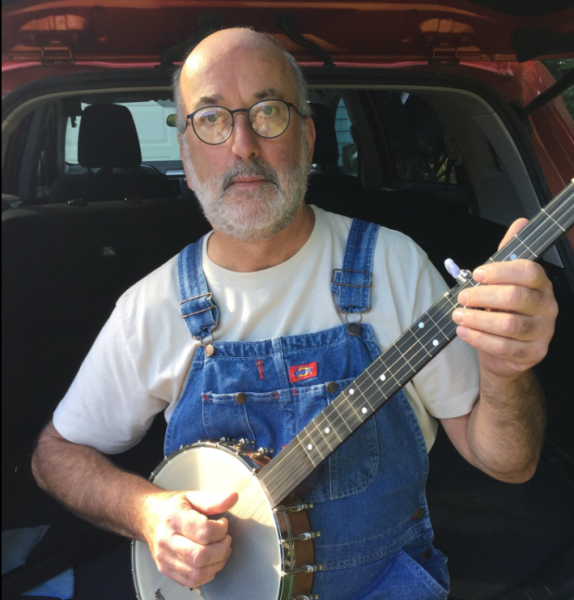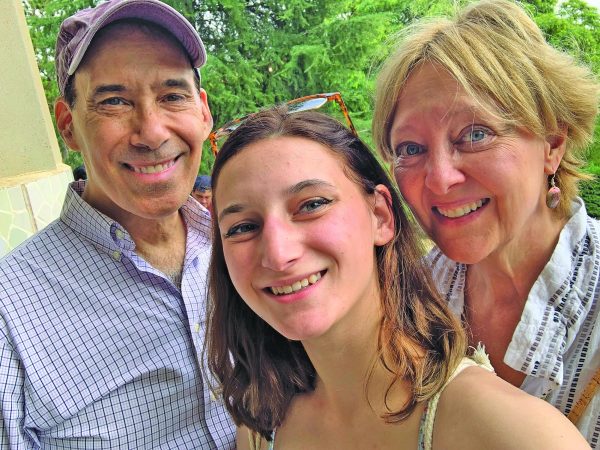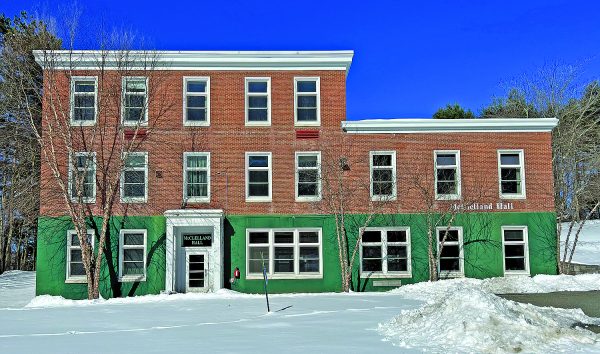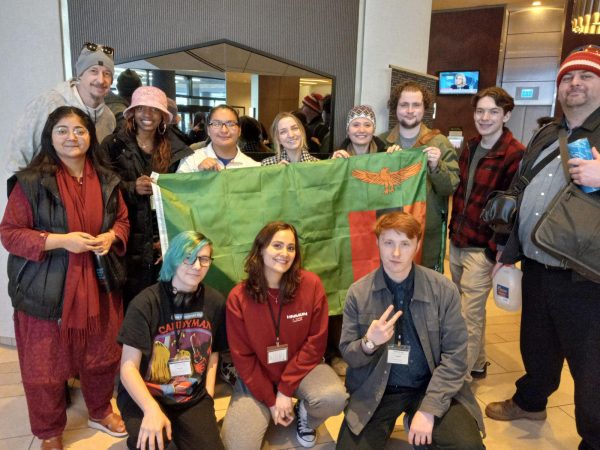When it’s time to hang it up: “It’s the only life we’ve ever known”
The Leslie and Donna Hammond farm from the air
As one of the founding industries of the state, dairy farming has had a profound impact on generations upon generations of Vermonters, often defining entire lives and identities. In some instances, children of these families unite through marriage and embark on their own farming journey, as was the case for Leslie and Donna Hammond of Newport Center, Vermont.
Both Leslie and Donna grew up on dairy farms in the Newport area during the 1950s and 1960s, which meant spending the majority of their youths working for their respective family businesses. In 1971, Leslie left his family and moved in with Donna so the two could run her parents’ farm.
“The farm was built in 1886 and had been in and out of our family for years,” Donna said. “My parents owned it, my grandparents owned it, as did my sister-in-law Jean’s parents.”
“We would milk the cows and maintain the farm, paying Donna’s mother a quarter of each milk check as rent for living there and using the 29 cows and one bull,” Leslie added. “We did this until 1983 when she finally let us buy it.”
Although they were owners of their own dairy farm, a goal they had been working on together for over a decade, Leslie and Donna’s lives as farmers didn’t get any easier. “Once we bought it ourselves, we stuck with the same number of cows but built a new barn,” Leslie said. “But we could never make any money milking cows. All we did was get the milk check and spend it on the farm right away, over and over.”
Unable to gain any headway, the couple began supplementing their income through various methods. They bought more land, expanding their fields to enable them to grow enough hay to sell. They also picked up side jobs; Leslie drove a milk truck and Donna drove the local school bus while also serving hot lunch for the school.
But by far the most lucrative change they made was selling cows.
“We would raise up a herd and sell it and then raise up another and sell those,” Leslie said. “That was how we really made money, we’d sell ten each spring. Lots of farmers couldn’t take care of cows, so they had to buy them all the time. With farming back then, everybody was trying to get bigger because they thought they would make more money. When really all that they were doing was shooting themselves in the foot. Nowadays they’re all borrowing money to stay alive. I don’t know how they keep going, it’s crazy.”
Another large shift in their farming took place in 2006, when they became certified organic. This allowed the Hammonds to sell their cows and hay for more profit. A few times over the years they would sell all of their full-grown cows while keeping the heifers, and then find a herd of cheap cows to buy and start over.
After 45 years of countless ups and downs on the farm, Leslie and Donna decided it was finally time to sell in 2016. “That spring Donna said she was all done milking and it was time to quit,” Leslie said. “I didn’t want to sell the cows, but there was this guy who wanted to buy them and one day he asked me what it would take. I told him I won’t even consider it for less than three grand a piece. The guy walked up and down the barn, looking at the cows, and agreed to the deal. I realized I should have asked for more, but looking back, the timing was perfect. You can hardly give a cow away now, so it turned out to be a good thing. That September the guy that bought our cows showed up with a check in his hand after selling his own farm, he just couldn’t stay above water.”
The Hammonds sold the farm itself separately from the livestock, unloading 166 of their 219 acres of land. They then built a house on the remaining acreage, where they plan to spend the rest of their lives.
However, the transition from farming to retirement for Leslie and Donna, now in their sixties, has not been easy. “How can you not miss something you did for 45 years?” Donna said. “I miss the outside work, taking care of the animals and visiting with the different people we worked with like the milkman, breeder and grain truck drivers. I miss always having a schedule and something to do every day. But, of course, there’s a lot of things I don’t miss about it, it was very hard work. I didn’t mind getting up in the morning, but eventually you get so old you can’t do it anymore.”
“I really missed farming for the first year after we sold,” said Leslie. “Somedays I get bored, but some days it’s nice not to have to worry about anything.”
Now that the Hammonds are fully removed from the declining dairy industry and it no longer impacts their lives, they have ideas on how it can be saved. Leslie believes that a system similar to Canada’s should be adopted in the U.S.
“We should have some kind of quota system so that everybody gets a fair price for their product, instead of letting everybody over-produce and hurting themselves,” he said. “When the price goes down, they try to make more milk, and when the price goes up they do the same thing. The price has been going down for three years now and it’s not looking good. I don’t know how they can keep going at this rate.”
Donna echoed her husband’s sentiments, noting that aside from all of the rules and regulations farmers face, the price of milk was always their largest challenge. “If the co-ops took care of their farmers like they do their haulers, farmers would be making a lot more money,” she said. “We had to pay a certain amount per hundredweight to have our milk picked up and when the price of diesel fuel went up, we had to pay a surcharge to the haulers. The co-ops are making all of the money while the farmers do all of the work.”
Although it took them time to adjust to life off of the farm, Leslie and Donna have begun to embrace retirement. Having sold before it was too late, they can comfortably enjoy the rest of their lives knowing that their stress-filled dairy days are firmly in the rearview mirror. But their previous life is never too far from their minds, as their new house lies on a peaceful hill overlooking their former farm.
“It was a good life, for the most part,” Donna said.
“It’s the only life we’ve ever known,” added Leslie.


